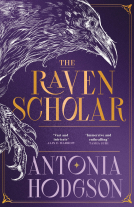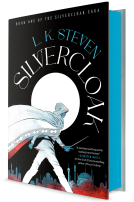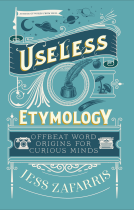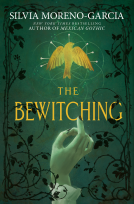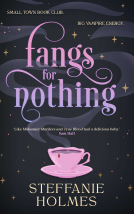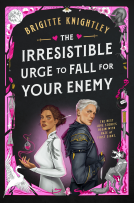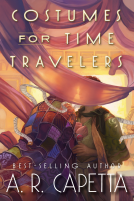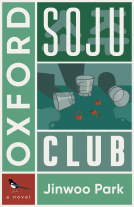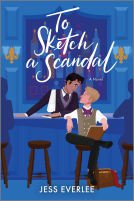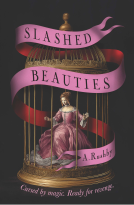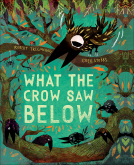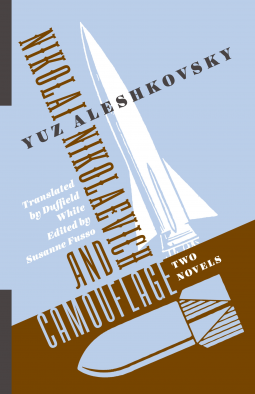
Nikolai Nikolaevich and Camouflage
Two Novels
by Yuz Aleshkovsky
This title was previously available on NetGalley and is now archived.
Send NetGalley books directly to your Kindle or Kindle app
1
To read on a Kindle or Kindle app, please add kindle@netgalley.com as an approved email address to receive files in your Amazon account. Click here for step-by-step instructions.
2
Also find your Kindle email address within your Amazon account, and enter it here.
Pub Date Jun 11 2019 | Archive Date Aug 11 2019
Talking about this book? Use #RussianLibrary #NetGalley. More hashtag tips!
Description
Nikolai Nikolaevich begins when its titular hero, a pickpocket by trade, is released from prison after World War II and finds a job in a Moscow biological laboratory. Starting out as a kind of janitor, he is soon recruited to provide sperm for strange experiments intended to create life in the Andromeda galaxy. The hero finds himself at the center of the 1948 purge of biological science in the Soviet Union, in a transgressive tale that joins science fiction (and science fact) with gulag slang and a love story. The protagonist and narrator of Camouflage is an alcoholic who claims that he and his gang of friends are just one part of a vast camouflaging operation organized by the Party to hide the Soviet Union’s underground military-industrial complex from the CIA’s spy satellites. As they pass their time on the streets and share their alcohol-inspired fantasies, they see the stark reality of the Cold War in Russia in the late seventies. Nikolai Nikolaevich and Camouflage introduces English-speaking readers to a master of the comic first-person narrative.
Advance Praise
“Forget old myths about censored, obedient Soviet citizens, and meet Aleshkovsky’s wildly enterprising and emphatically free-thinking protagonists who don’t hesitate to use colorful language to make a point about body politics, the scientific use of semen, and other absurdities of modern life.”
—Yvonne Howell, University of Richmond
“Yuz Aleshkovsky often gets lost in the shuffle when discussing of the important Russian writers of the late twentieth and early twenty-first centuries. These outstanding English translations of two of his early works offer readers another chance to encounter his idiosyncratic, occasionally profane, and thoroughly remarkable voice.”
—Derek C. Maus, State University of New York at Potsdam
Available Editions
| EDITION | Other Format |
| ISBN | 9780231189675 |
| PRICE | $15.95 (USD) |
Featured Reviews
Aleshkovsky's stories are not significant only for their strong linguistic profile but also for the author's keen study of Soviet life; "Nikolai Nikolaevich" depicts the blindness of ideology whilst "Camouflage" deals with the bitter realization that "a revolution in the name of the People has devolved into a system in which those at the top enjoy a luxurious life while the People starve and descend into mindless drunkeness".
 John L, Reviewer
John L, Reviewer
An interesting brace of Soviet-era novellas. The producers of the book make great store by how they've translated a lot of argot, cussing and street slang into something readable, and it is actually quite remarkable how easily the first piece trips off the page. It's not as good as it could have been, however. The work concerns an ex-con who has a breed of wonder sperm, that some scientists are intent on milking from him on a daily basis for mysterious purposes. Things are going swimmingly for him until he finds the equally mysterious emotion called love getting in the way of this new career. It tries to have its cake and eat it, and while it's light-hearted and somewhat clever, what it wants to say about Soviet times gets in the way of the plot, and vice-versa. The slapdash feel of the piece is evident when there's nothing of said relationship in the last 20pp, which is a pity. The introduction tells us what exactly the slightly misunderstood 'samizdat' meant, and this does feel like a first draft smuggled fresh off the typewriter roll. (In fact, the introduction is quite brilliant, both being spoiler-free and managing to tell us exactly what the original context was, negating the otherwise welcome academic footnotes in the story.)
The second story would appear to be even richer in fun for the reader, being as it is the narrative of a bloke who is convinced everything drunken, sordid, underhand and disreputable about his Russia is merely a shadowplay for the benefit of the American spy satellites, and dressing to disguise the countless hydrogen bombs being produced underneath the streets. That is, until he comes to the opinion that even that set-up is, to put it bluntly, buggered. Again it veers too widely from the satire to a post-Aristophanes message, to something else with a lot of waffle in between, and this one does need the notes, for it speaks at times much less to the ignorant Westerner. But still, two brave, distinctive and entertaining monologues, the likes of which you'll seldom see elsewhere. To some extent they were definitely quickly-produced pieces of their time, and so not as wonderful as this volume attests, but they're still worth considering.
Thank you Netgalley and Columbia University Press for this ARC in return for my honest review.
I have no idea how to start. I am not entirely sure what I’ve just read. Fellow reviewers are talking about a strong linguistic profile that I cannot support as a Russian. It seems vulgar and overdone. I understand that Aleshkovsky was aiming for a simple Russian proletariat, in Nikolai Nikolaevich story, an ex-con, pickpocket, who does not know any better. His language is very characteristic along with drinking habits and money thirst. As a character Nikolai Nikolaevich is well written, I can even see that type of person who is looking to do less and earn more. Plot-wise the story fell short for me. Continued description of masturbation and sperm did not fascinate me a bit. His sudden love towards Vlada astonished me as quite unnecessary. I haven’t seen any science fiction in it as well, only some science and fiction.
The uselessness of the experiments and the amount of money thrown into them may signify the desire of the Soviet government to overachieve and always be first in any inventions, especially considering space development. Soviet literature is boring as all the work went through strict censorship, and Aleshkovsky would never ever pass it as his work did not show the Soviet Union as a dreamland with successful workers and happy citizens. The goal is completely different; Aleshkovky was trying to draw the reality of the pretended state, his own perception of USSR. I support his view and goal to show USSR as it was – cruel towards its’ citizen, propaganda driven – but I can’t see any value in this particular story.
I liked The Camouflage more as it gave me a bit more sense. The drunken stories of Milashkin that could have been his illusions in a hospital are quite interesting. However, Aleshkovsky’s obsession with gay rape lest me dumfounded.
I felt like Aleshkovsky threw everything that was prohibited or frowned upon in USSR and tried to be satiric. Personally, I didn’t find it satiric, only gross.
 Mandy J, Reviewer
Mandy J, Reviewer
These two humorous novellas are very much in the tradition of Russian satirical, usually dissident, literature, in the manner of Gogol and Bulgakov, and captures the absurdities of everyday Soviet life, the bureaucracy and inherent dangers of opposing the regime. The target in Nikolai Nikolaevich is Soviet science, and in Camouflage the Cold War. Nikolai Nikolaevich is set just before and just after Stalin’s death, and our hero, an ex-con and pickpocket, is recruited to provide sperm for an experiment to create life in the Andromeda galaxy. The project is useless but ideology comes before scientific rigour. He gives up his criminal lifestyle for this lucrative new career, but the esoteric experiment goes the way of much Soviet research, especially after the 1948 purges in biological science. Camouflage is set in the Brezhnev era and here our hero is alcoholic Fedya Milashkin who is convinced that the drab and dreary appearance of Soviet society is merely a strategy designed to fool the CIA spy satellites and to disguise the development of hydrogen bombs hidden underground. Both novellas offer perceptive insights into Soviet life and it’s no surprise that they couldn’t be published when written in the 1970s. Rooted in their time and place, the excellent introduction is pretty much essential, as are the notes at the end. They could be read with enjoyment by someone not familiar with Soviet literature, but I feel that at least some familiarity with it is necessary for a full appreciation. But for the Russophile the two stories are a delight, funny, wry, with a strong narrative voice in both instances, and are read with a chilling recognition of what life was really like during these years.
 John A, Reviewer
John A, Reviewer
Yuz Aleshkovsky wrote several novels and other works but they were unpublishable in the Soviet Union for two reasons. Firstly they mocked the Soviet system. Secondly, they were riddled with obscenities. Russian obscenities are known as Мат (Mat), which comes from the Russian word Мать meaning mother, as one of the key obscenities is Ёб твою мать (Fuck your mother). Many Russians use this language on a regular basis and Nikolai Nikolaevich, the narrator of this novel, certainly does. The translator points out that English simply has no precise equivalent for the richness of Russian mat.. Nevertheless, this book is riddled with the standard ones.
At the start of the book Nikolai Nikolaevich has been released from prison, aged nineteen. Initially, to earn a living he starts pickpocketing people on the bus, However, his aunt warns him that they are really clamping down on theft and anyone caught will face a long prison sentence. Fortunately, her neighbour, Kimza, offers him a job working in a scientific laboratory. It will be fairly simple, carrying chemicals and helping set up experiments.
However, he still carries on in his old ways, stealing the wallet from the Head of Personnel. There is no money in it, but lots of denunciations, including a long list against Kimza. He informs Kimza who is, of course, grateful, and who tells him about his work. In particular, he needs a donor and Nikolai is just the man for the job. It is very easy, requiring only a short time every day and well paid. All he has to do is masturbate. They are collecting sperm for the experiment and Nikolai is ideally suited. Indeed, when he starts he seems to perfect for their needs.
Nikolai at first succeeds without problem but when he has problems, other solutions have to be found and are. It seems (possibly) that the person is to create a new breed of human to populate outer space and Nikolai seems to the ideal progenitor.
Lysenkoism was a now discredited science which opposed genetics and science-based agriculture. It won the support of not only the Soviet authorities but also of Stalin himself. As Kimza and Co are using genetic they, they are soon in trouble, as the Lysenkoists move in and Kimza and colleagues and Nikolai are moved out. Nikolai, ever inventive, manages to more or less survive but loses his easy job.
It is easy to see why this book would never have been published in the Soviet Union. Nikolai swears like a trooper, masturbation is the key theme (All of Soviet and world science is nothing but jacking off…And Marxism-Leninism? It’s obvious onanism, says one character), and is described in some detail and the Soviet system is mercilessly mocked.
Much of it is very funny. One experiment, for example, is to see whether reading books can turn Nikolai on and, if so, what books. We get a very detailed list (from Kon-Tiki to Othello) of what turns him on and what does not turn him on (Socialist Realism and Anna Karenina). A different take on Russian literature of the era. Though the book was published in 1980, it was written in 1970.
https://www.themodernnovel.org/europe/europe/russia/yuz-aleshkovsky/camouflage/
If you have already read Николай Николаевич (Nikolai Nikolaevich), which was published jointly with this book in both English and Russian, you will know that Aleshkovsky’s modus operandi is obscenity. While there are not perhaps as many swear words in this book as in Николай Николаевич (Nikolai Nikolaevich), there are certainly a fair amount. Moreover, the theme moves from masturbation to homosexual anal rape or, rather, the theme remains the mocking of the Soviet system and its lies and deceits but masturbation is no longer the key subject.
The book is set in the fictitious town of Staroporokhov (it means Old Dusty). It is narrated by Fyodor Milashkin (a camouflager of the eighth (highest) rank), who is apparently talking to his brother, Grisha, a Soviet general. The town is the centre for Soviet nuclear activity but all of this has to be disguised when the US spy satellites fly overhead (at least once a day) and that is Milashkin’s job.
He and his fellow camouflagers have to pretend to be normal Soviet citizens going about normal Soviet activities, so that the satellites (and also the CIA spies who come to the town) do not suspect what is going on. Of course, what this means in practice is that they have to make the sacrifice of drinking large amounts of vodka and being drunk (and disorderly). It is partially a sacrifice. Milashkin, because of his drinking, is not fit for sex with his wife and they have not had sex for six months.
It is not just the behaviour of the camouflagers that is involved. There is, for example, a large swimming pool which doubles as a swimming pool and also the source of cooling water for the nuclear reactors. The football stadium is just above where the Party Committee in charge of assembling the first hydrogen bombs is located. The spies cannot hear the work over the cheers of the football fans. The main meeting room is just below the cemetery though, because of the usual corruption, the roof was not very strong, with disastrous but highly amusing consequences. Atom bombs are moved around in lorries marked MEAT.
One day, Milashkin got seriously drunk and when he awoke (by the statue of Lenin) he was almost naked in the main square, with police examining him. It turns out that he had been anally raped and, as he later discovered, so had other members of his brigade. The police had visited his house and found that his son had samizdat literature so father is now branded as both homosexual and subversive and the son is in prison.
You will not be surprised to know that the homosexual rape has an explanation which, inevitably, is more amusing than serious. Milashkin discovers the culprit by pretending to be dead drunk by Lenin’s statue.
However, Aleshkovsky is not limited in his mockery to the drunken Russian male. The whole issue comes to the attention of the powers-that-be and soon we have all the senior Russian officials of the era – Brezhnev, Kosygin, Andropov, Suslov, Kirilenko and Podgorny – discussing the matter and what to do about it. They are also worried about another matter – the fact that they are falling behind the United States in technology, not in space or computer technology but in another, far more mundane area.
Inevitably, Aleshkovsky lashes out at Soviet officialdom, poking fun at them individually and collectively as they struggle with the issue in Staroporokhov.
However, things get worse for Milashkin, as the 1980 Olympics are to be held in the Soviet Union and some will even be held in Staroporokhov. This Staroporokhov has to change somewhat, as regards the nuclear activities but there are two other key issues. Firstly, clearly the streets cannot be littered with drunks so Milashkin and friends will have to go dry or move away. Secondly, all the best food is to be kept for the visitors, leaving little for the locals. Naturally, they are not happy about this.
It is a very funny book, far less scatological than Николай Николаевич (Nikolai Nikolaevich). The drinking culture is the focus but Aleshkovsky spreads his satire far and wide. The two books certainly make a change from the standard Russian exile literature.
https://www.themodernnovel.org/europe/europe/russia/yuz-aleshkovsky/camouflage/
 Michael E, Reviewer
Michael E, Reviewer
Oh dear. It's difficult to rate a book (a pair of novels, as it were) like this, because you don't want to tarnish the work that went into it by the folks who aren't the author. Let's get to them first.
First, the author of the broad introduction deserves special mention. The "subtleties of Russian obscenity" are expressed in great detail and at great length, explained to grease the skids for what the reader was about to encounter. No amount of honking the horn or flashing the brights, however, could prepare the reader for these novels. Not sure who the author of this introduction is - it's "unsigned," but I suspect the words are those of the editor, Susanne Fusso. It's a shame that the piece went without offering the name of the writer, because it is seriously a brilliant piece of work on its own.
The translator, too, should be given a sincere round of applause for what had to be a taxing effort. The amount of coarse language, prison and military slang, and shabby (even for the 1970s) jokes and puns would have made a lesser translator just walk away. But Duffield White attacked the task (with help duly noted in the Acknowledgments section) with aplomb. Some of the translations will appear clunky, derivative of the much taunted style of Constance Garnett at times, but that has nothing to do with White and everything to do with Yuz Aleshkovsky, the author of these works.
And yes, that brings us to Aleshkovsky himself. I appreciate his writing, I really do. I also appreciate what he brought to an otherwise polished era of Soviet writing. But let me put it bluntly (and why not?) - simply because you are the groundbreaker when it comes to peppering your work with expletives doesn't mean that every third line (I'm not exaggerating) requires vulgarities to describe bodily functions, sexual organs, or the act of sexual congress itself. It becomes tiring very quickly. And the jokes were probably quite a hit a) in their time, and b) among Russian speakers in c) the Soviet Union. But they fall tremendously flat after the 40-50 years since they were first concocted.
In Aleshkovsky's literary world, everything is not only a grostesquery, it is defecating on the reader's hands and face from start to finish. At least in these novels - his wonderful "Kangaroo" was a brilliant piece of satire, and didn't rely anywhere near as heavily on this level of depravity. It's a shame; I read thee books and wanted very much to fall in love with them. Quite the opposite occurred.
